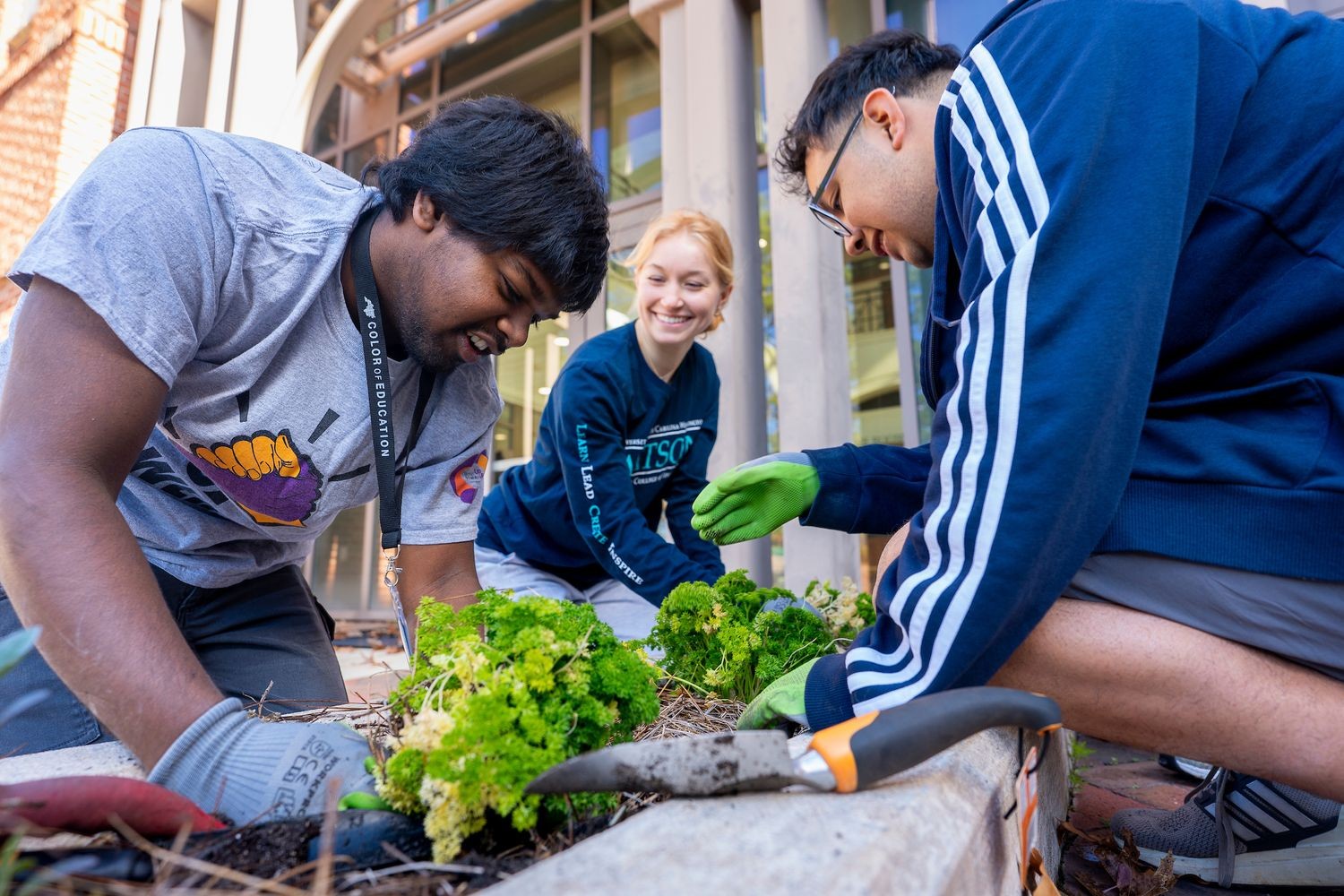The Watson College of Education is cultivating growth beyond the classroom with a new, garden-based learning program.

Photo: Jeff Janowski/UNCW
As students dig into the soil, they are nurturing more than the seedlings that will one day blossom into vibrant plants. The Ability Garden is helping students grow their confidence and independence, creating a community of empowerment and support.
Nestled behind the Education Building, the Ability Garden is a space where people with disabilities can engage in garden-based learning. In the fall of 2024, students from Watson College of Education’s Special Education program partnered with students in New Hanover County Schools’ Transition Program for Young Adults (TPYA) program and staff from the New Hanover County Arboretum to bring this initiative to life. Together, they have transformed a patch of earth into a thriving hub of opportunity and learning.
“We’re learning how to break down tasks and reinforce tasks, but there is a huge difference between listening to a lecture and getting to put the evidence into practice,” said Abby Tracz, a junior in Watson’s Special Education program. “You can apply it to so many different aspects of teaching—learning how to adjust learning for everyone and making it an experience in which everybody, regardless of ability, can participate.”
"I can’t believe how much it has changed me. It has made me feel like a grown man instead of feeling like I couldn’t do these things.
It has made me feel like I can trust myself with the skills I have learned. I wish all kids like me had the chance to come and be a part of this.”
—Aman Hebert
Each week, students return to the garden for activity-based learning sessions, where they not only cultivate plants but also personal and professional skills. The program fosters an environment where learning extends beyond the classroom, encouraging collaboration between Watson students and their TPYA partners. For Tracz, this hands-on experience is invaluable—not just for her growth as a future educator but also for the friendships she is forming along the way.
One of those friendships is with Aman Hebert, a first-year student in the TPYA program. Hebert has discovered new strengths through his time in the garden.
“You get to learn what you are good at. I’m learning how to use money, how to buy things and pay bills,” said Hebert. “Growing plants is an amazing thing. I’m learning how to cook and make recipes. There are a lot of things we can do and be grateful for in our lives.”
The impact of the program extends far beyond the soil. As Tracz and Hebert work side by side, they recognize the significance of their shared experiences.
“It’s so wonderful being able to see how much of a difference it makes not only in my life but knowing the impact you’re having on somebody else’s life by being able to help teach those life skills and build a community,” said Tracz. “Knowing how much of a difference it’s going to make in people’s lives moving forward continues to make me want to become a better teacher and give my all to the classroom. It’s just the best feeling realizing we are growing as a team and building those connections.”
Embodying the mission of the program to empower through gardening, education, inclusion and community engagement, Hebert looks ahead and plans to one day open his own grocery store with items he has grown in his own garden.
“I never knew I could make it this far because my reading skill is not great, but it has come really far, and I am so glad,” said Hebert. “I’m excited to go out into the world and make it a better place.”
Although still sprouting, the Ability Garden has proven to be more than a classroom—it is a place where seeds of knowledge, friendship and independence take root. Through teamwork, mentorship and a shared love for learning, students are preparing not just for their next season, but for a lifetime of growth.
This article has the following tags: myUNCW WCE - Watson College of Education Engagement


